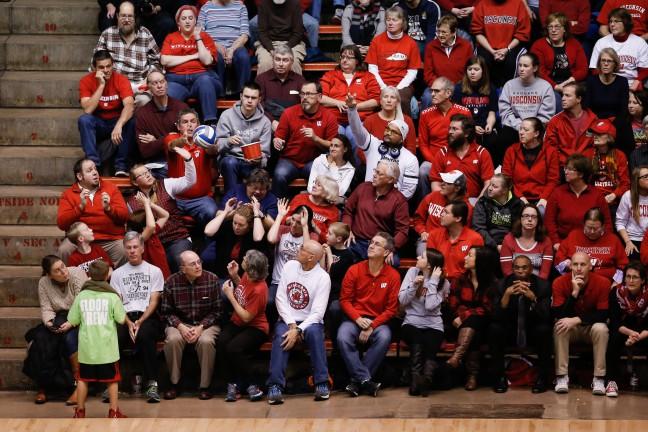Gambling is an integral part of the human condition. Every decision we make has corresponding consequences, most of which are variable in nature and therefore present a risk to our physical health, financial situation or mental state.
The stock market serves as a great example of how millions of Americans risk a piece of their financial future on firms in the open market. In the end, our investment decisions are merely educated guesses. It’s a process investors have down to a science, but it involves variability, consideration and risk. Courtesy of definition, it is gambling.
While betting on sporting events is very different than purchasing stock, it carries a similar variability and has developed into a professional field all its own.
And yet, it is illegal in the state of Wisconsin and just this year has had its federal chokehold lifted. Numerous states have quickly forced legalization legislation through, but Wisconsin has not yet drafted a proposal for this purpose. Considering the potential for economic advancement similar to that of casinos and its relative harmlessness when done responsibly, there is no reason for sports betting to remain against the law.
On the entertainment side, sports fans benefit from vested financial interest in one team over another, courtesy of their choice of bets. Likewise, ratings would skyrocket for small market games with favorable betting lines, as betting participants would likely tune in to follow their “investments.” With college athletes again able to profit off their likeness, this could mean positives for the players as well, through increased exposure and legislative action trending toward allowing endorsements.
The potential for corporate and state profits associated with the legalization of sports gambling through online betting apps is massive. Nevada imposed a 6.75% tax rate on winnings and the state took full advantage of domestic tourists, eager to bet and spend elsewhere, earning revenue indirectly. All told, Nevada earned more than $300 million from taxing placed bets and earnings. Additionally, the largest sportsbooks in the country call Las Vegas home, from which they earn more than enough to continue operations.
Ultimately, the legalization of sports betting across the country will encourage those previously unable to place wagers to do so, allowing the true potential of this facet of the market to shine through. No matter where you live, you ought to be able to spend and invest your income on whatever you choose, so long as it does not negatively impact the lives of others and is done with respect to the framework of the constitution.
Those against the legalization of sports gambling use two central claims — the first being that gambling is a psychologically addicting and mentally damaging activity, especially through the promotional betting promo code use to entice people with an already weak will power, and therefore must be regulated through legislative processes, presumably to protect us from its negative potential. With this understanding comes a contradiction to capitalism and free market society. Restricting the ability to bet on sports because of potential personal complications is directly analogous to the initiative behind temperance and the period of prohibition.
The underlying key is moderation and responsibility. Anti-gambling activists’ best attempt to showcase all of the psychological problems derived from gambling fall short — they fail to recognize that betting is simply an avenue to expose a lack of personal accountability and responsibility, just as with alcohol, eating habits and every decision under the shining sun.
There is a definite gray area, however, when considering logistical and moral problems with sports betting. Critics of its legalization proclaim betting, especially the collegiate variety, violate the presumed integrity of sport and allow for point shaving and throwing games. While there are certainly risks attributable to this concept, the already legal online betting sites have not increased the likelihood for scandal as of yet.
Furthermore, players who intentionally underperform would be reprimanded, criticized by fans and socially discouraged once news surfaced of such events taking place. Therefore, it is reasonable to assert that societal pressure alone should alleviate the issue, although it is not a bulletproof prevention measure. There would certainly be institutional consequences handed out for illicit point shaving, just as with the Boston College incident of the late 1970s.
Understanding the risks associated with allowing sports gambling is a crucial part of the argument for its legalization. Let us face the realities on this — the NCAA is already corrupt. Players are illegally influenced, have their tests taken for them, receive illicit endorsements and if you can think of a way recruiters could cheat to get ahead of the competition, it has already been done. It is beyond the time to make sports betting legal — the foreseen negatives are vastly outweighed by the potential for profit and increased entertainment value.
The bottom line? There are countless loopholes around the illegality of sports gambling. Why not close them all by eliminating their necessity? Why not profit off of what many Wisconsinites are already doing on a weekly basis? The time to stop mismanaging this situation has come. It would be plainly unwise not to take advantage of this opportunity for financial and entertainment enrichment in this state.
Justin Lariviere (jlariviere@wisc.edu) is a freshman studying communications and economics.


